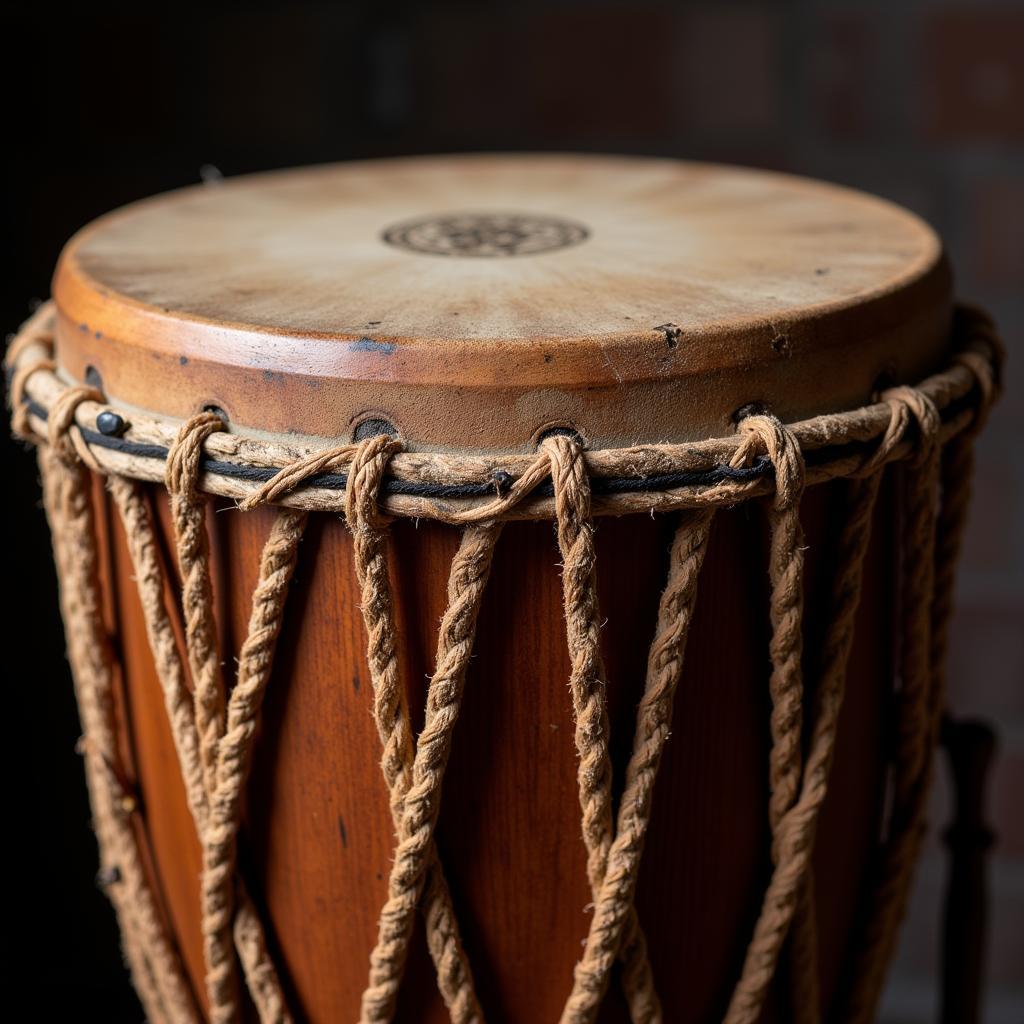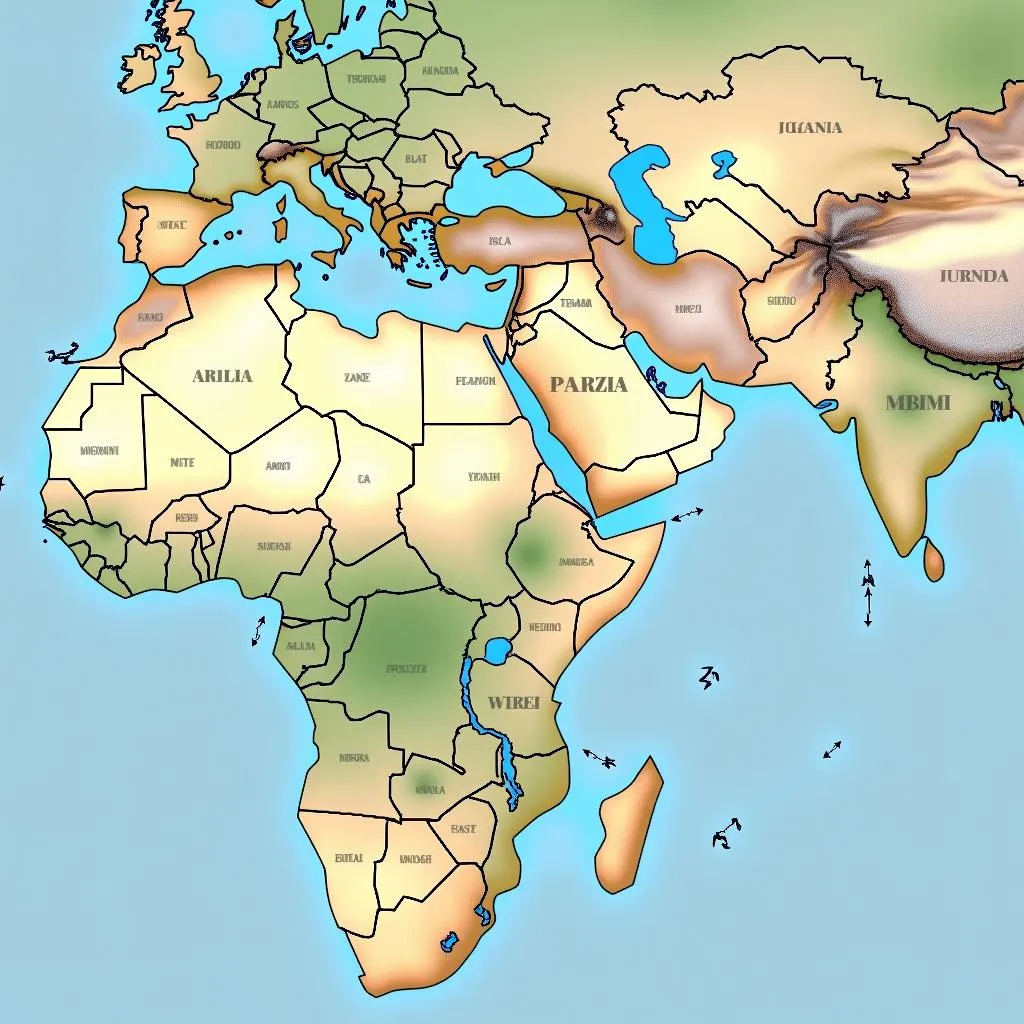Unveiling the Beauty of African Dress Design Patterns
African Dress Design Patterns are a vibrant tapestry woven with history, culture, and artistry. From the intricate kente cloth of Ghana to the bold Maasai shukas of Kenya, each pattern tells a story, reflecting the unique identity of its people. This article explores the rich diversity of African dress design patterns, their significance, and their enduring appeal in the modern world.
African dress design patterns are more than just aesthetically pleasing; they are symbolic representations of heritage, status, and even spiritual beliefs. These patterns, passed down through generations, are a testament to the creativity and ingenuity of African artisans. The intricate details and vibrant colors speak volumes about the rich cultural landscape of the continent.
A Journey Through African Textile Traditions
African textiles are renowned for their diverse techniques and materials. From hand-woven fabrics to elaborate embroidery, the craftsmanship involved is truly remarkable. Consider the Yoruba Aso Oke, a hand-loomed cloth used in Nigeria for special occasions. Its intricate patterns and vibrant colors tell stories of Yoruba history and mythology. Similarly, the intricate mud cloth of Mali, known as bogolanfini, is created using fermented mud and plant dyes, resulting in unique geometric designs.
The use of natural dyes derived from plants, roots, and bark is a defining feature of many African textiles. These dyes create a rich color palette, ranging from earthy browns and deep indigos to vibrant yellows and reds. Not only do these dyes imbue the fabrics with beautiful hues, but they also often hold symbolic meaning within the specific culture.
Exploring the Symbolism in African Dress Design Pat
Many african dress patterns and designs carry deep symbolic meaning. For instance, the Adinkra symbols of Ghana are incorporated into textiles and represent proverbs, historical events, or philosophical concepts. These symbols offer a visual language, communicating powerful messages through the cloth itself. Similarly, the Ndebele people of South Africa are known for their vibrant geometric wall paintings, which are also reflected in their intricate beadwork and clothing designs.
What are common motifs found in African dress? Common motifs include geometric shapes, animal prints, and depictions of nature, each holding specific meanings within different cultures. For example, the leopard print, often associated with royalty and power, can be seen in various forms across the continent.
African Dress in the Contemporary World
African dress has transcended its traditional context and become a source of inspiration for designers worldwide. From high-fashion runways to everyday street style, African attire clothing has made its mark on the global fashion scene. The bold prints, vibrant colors, and unique silhouettes are embraced for their individuality and cultural richness.
How is African dress design evolving? Contemporary designers are blending traditional techniques with modern aesthetics, creating innovative and exciting new styles. They are experimenting with different fabrics, silhouettes, and embellishments, while still honoring the cultural heritage behind the designs.
It’s important to appreciate the cultural significance of African dress patterns and to avoid cultural appropriation. When incorporating these patterns into modern designs, it is essential to acknowledge their origins and to respect the cultural heritage they represent.
Conclusion
African dress design patterns are a testament to the continent’s rich artistic heritage. From the intricate symbolism to the vibrant colors and unique techniques, these patterns offer a glimpse into the diverse cultures and traditions of Africa. As we continue to explore and celebrate the beauty of african dress design pat, let us remember the stories they tell and the cultural heritage they represent.
FAQ
- What is Kente cloth? Kente cloth is a brightly colored, hand-woven fabric originating from Ghana, often worn during important ceremonies.
- What are Adinkra symbols? Adinkra symbols are visual symbols from Ghana, each representing a proverb, historical event, or philosophical concept.
- Where can I find authentic African attire? Authentic African attire can be found from various online retailers specializing in African fashion, as well as from local markets and artisans in Africa.
- How can I incorporate African prints into my wardrobe respectfully? Focus on understanding the origin and meaning of the prints you choose and supporting designers who ethically source their materials and honor the cultural heritage.
- What is the significance of the Ankara fabric? Ankara fabric, also known as Dutch wax print, is a vibrant, colorful cotton fabric widely used in African fashion, known for its bold patterns and versatility.
- How is African fashion evolving? African fashion is evolving through the innovative work of contemporary designers who blend traditional techniques with modern aesthetics, creating unique and globally recognized styles.
- What are some popular African dress styles? Some popular styles include the Dashiki, Kitenge, and the Boubou, each with its own distinct characteristics and cultural significance.
Common Scenarios and Questions
- Scenario: You want to incorporate African prints into your home décor. Question: Where can I find ethically sourced African textiles for home décor?
- Scenario: You’re attending a wedding and want to wear African attire. Question: What is the appropriate African attire for a wedding guest?
- Scenario: You’re a fashion designer inspired by African patterns. Question: How can I collaborate with African artisans and ensure fair trade practices?
Further Exploration
For more on the historical context of African textiles, consider exploring african colonisation history. To learn about organizations supporting African communities, visit the african communities foundation australia.
Call to Action
For assistance or inquiries, please contact us: Phone: +255768904061, Email: kaka.mag@gmail.com, or visit us at Mbarali DC Mawindi, Kangaga, Tanzania. Our customer service team is available 24/7.


